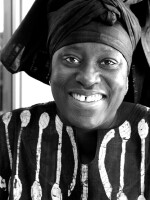RENEE MONTAGNE, host:
And as we've just heard, busloads of Zimbabweans have fled South Africa. You'll remember that last month, a wave of anti-immigration violence swept across South Africa's poor, black townships. Dozens were killed, tens of thousands were forced to flee their homes. NPR's Ofeibea Quist-Arcton visited some of them in Johannesburg.
OFEIBEA QUIST-ARCTON: It's bedlam in Jeppe police station in Johannesburg, where hordes of displaced Africans have been sheltering for the past month after they were targeted in sometimes deadly attacks. The ferocity and speed of the violence, which spread swiftly from one Johannesburg township to other parts of South Africa, caught the government and the security forces off guard. For the first time since the end of apartheid in 1994, troops were deployed to help the police quell the unrest.
Unidentified Man #1: (unintelligible)
QUIST-ARCTON: Someone is shouting through a loud hailer, as long lines of children, women and men, clutching their bundles and bags of belongings, are shepherded into military trucks and buses. They're being ferried to new, temporary shelters the government says have better security and sanitation, but some people, like this Congolese man, lining up with the crowds, who chose not to give his name, are reluctant to go.
Unidentified Man #2: This thing of xenophobia, the way they will look at us, and there is not even a place where you can live as a human being. I've got a family, so I'm not (unintelligible).
QUIST-ARCTON: Talk about the killings and the explosion of violence against African foreigners still dominates conversations on the streets and on the airwaves. Theories abound about why the trouble erupted now.
Many point to increasing poverty, social and economic inequality and simmering resentment among poor, black South Africans. They feel that migrants from other parts of the continent are taking their jobs, their houses and scarce resources and services, and that they commit crime. Frans Cronje is the deputy CEO of the South African Institute of Race Relations.
Mr. FRANS CRONJE (Deputy CEO, South African Institute of Race Relations): I think that what we've seen in South Africa is a perfect storm of political risk factors that have come together in an environment of increasing inflation and increasing fuel and food prices that have put the pinch of poor communities, and that is as close as we can get to an explanation for what sparked this initial violence.
QUIST-ARCTON: Cronje warned that the failure of government policies was partly to blame.
Mr. CRONJE: Xenophobia certainly is present in South Africa. Black-on-black racism has been a feature of those, but I think underneath that, what we are seeing is dissatisfaction amongst poor black South Africans with the ability of their government to deliver on the promises of a better life for all that were made in 1994.
QUIST-ARCTON: Yet 14 years ago, Nelson Mandela's Rainbow Nation was considered a welcoming safe haven for other Africans escaping conflicts and crises and looking for economic opportunities. Many expressed concern that it took Mandela's successor, President Thabo Mbeki, too long to address the nation and condemned the violence two weeks into the crisis. Mbeki described the attacks against foreigners as shameful acts and a blemish on South Africa's name.
President THABO MBEKI (South Africa): This is a time for unity. It is a time to speak with one voice against something which, if it takes root, will take us back to a past of violent conflict, which no one among us can afford.
QUIST-ARCTON: Another high-profile politician, veteran anti-apartheid campaigner Winnie Madikizela-Mandela, visited the displaced early on, trying to reassure the migrants after their harrowing ordeals. A prominent member of the governing African National Congress, Madikizela-Mandela did what many other South Africans were initially slow to do: She apologized to the survivors.
Ms. WINNIE MADIKIZELA-MANDELA (Activist and Politician, South Africa): People have lost a lot of confidence, but of course we are going to do our level best to assure them that we are going to restore their dignity. We are very, very sorry about what has happening.
QUIST-ARCTON: It's winter here in South Africa, and the displaced African migrants are moving to a giant tent city on the chilly edge of this sprawling metropolis, just a few miles south of Johannesburg's sophisticated skyline. Their new home looks like any other refugee camp in an African conflict zone, with rows upon rows of white tents donated by the United Nations.
The government says the displaced foreigners will be taken care of for the next two months, after which they must make their own way. Ofeibea Quist-Arcton, NPR News, Johannesburg.
MONTAGNE: All this week, MORNING EDITION will be reporting on South Africa. It's been 14 years since apartheid ended, black majority rule began - and still, racism is a problem, as we'll hear tomorrow. Transcript provided by NPR, Copyright NPR.






